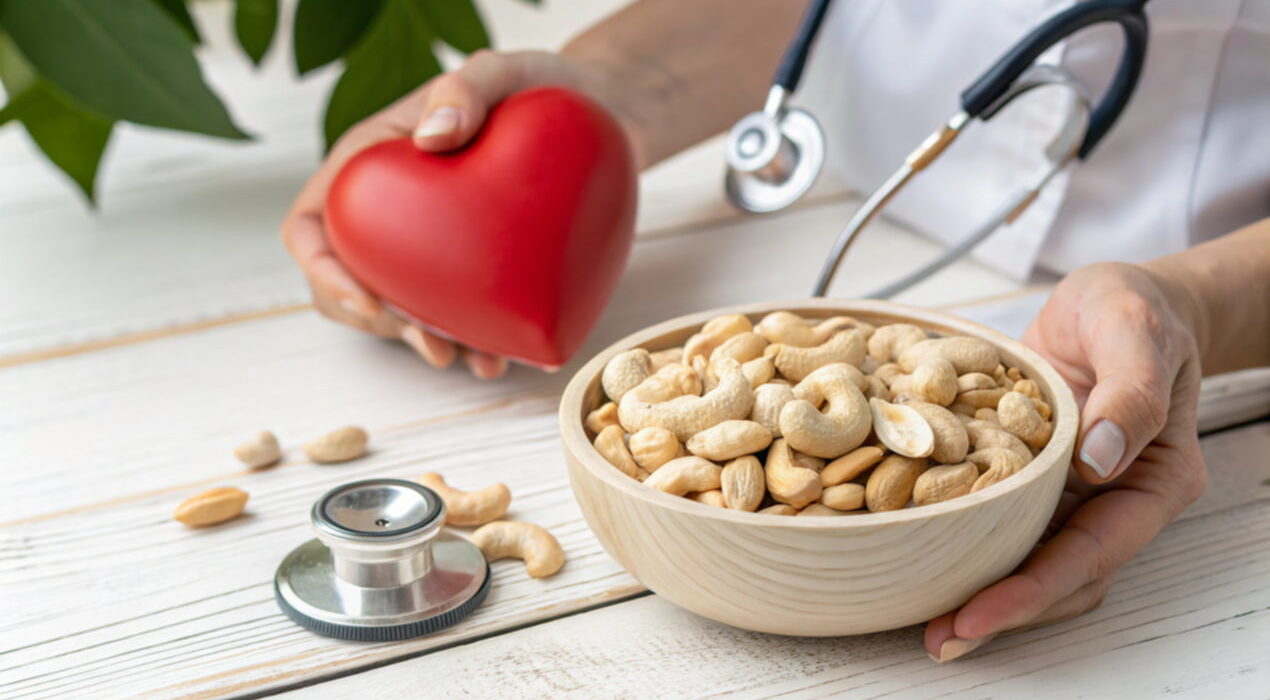Daily Cashews for Heart Health: Benefits Explained
Heart disease is a major health concern worldwide. Small dietary changes can make a big difference.
Cashews are creamy, nutrient-rich nuts packed with heart-healthy fats, magnesium, potassium, and antioxidants. Studies suggest that eating cashews daily may help lower blood pressure, improve cholesterol, and reduce triglycerides. Including them in a balanced diet with fruits, vegetables, and whole grains can strengthen heart health naturally.
Healthy Fats and Blood Pressure Support
Cashews contain monounsaturated and polyunsaturated fats, the same “good fats” found in olive oil. These fats help reduce harmful LDL cholesterol and maintain healthy HDL levels. As a result, they prevent plaque buildup in arteries and improve blood flow. Unlike saturated fats in red meat or processed foods, cashew fats reduce inflammation and support flexible blood vessels.
Cashews are also rich in magnesium and potassium, essential for controlling blood pressure. Magnesium relaxes blood vessels and eases strain on the heart. Potassium balances sodium in the body, helping prevent hypertension. Studies show moderate daily consumption of cashews supports healthier blood pressure and overall cardiovascular function.
Antioxidants, Triglycerides, and Weight Management
Cashews are full of antioxidants like polyphenols and tocopherols, which fight free radicals and reduce inflammation. These compounds protect heart tissue and repair blood vessels. Regular consumption also helps lower triglyceride levels, improving lipid balance. Eating small portions promotes satiety and can aid in maintaining a healthy weight. Pairing cashews with whole grains, fruits, and vegetables enhances their heart-protective effects.
For best results, eat 5–10 unsalted cashews daily. Add them to salads, smoothies, or stir-fries. Choose raw or dry-roasted varieties and practice moderation. People with nut allergies should avoid cashews, and no single food replaces regular exercise or medical care.






